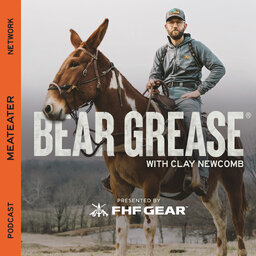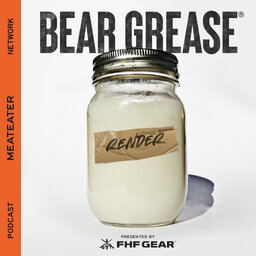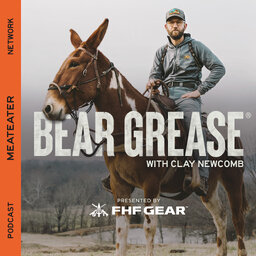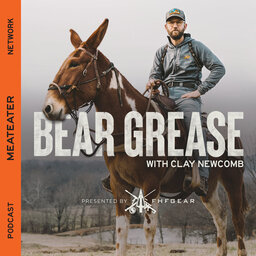Ep. 5: Understanding Our Irrational Connection to Dogs
On this episode of the Bear Grease podcast, I’m in pursuit of understanding my irrational connection to dogs. I’ll talk about Lewin Newcomb -- my grandfather -- and his internal hierarchy of important things (of which dogs ranked very close to the top). I’ll interview anthropologist David Ian Howe, who specializes in the dog/human relationship, and we’ll discuss dog domestication, the impact of human selection on dogs, and how canines have affected the trajectory of our civilization. We’ll also interview a dog trainer, Damon Bungard, about his dogs and the unique way he uses them. Lastly, we’ll go on a raccoon hunt with hounds as we explore our irrational connection to canines. Towards the end we’ll draw some conclusions on new ideologies that are trying to change the rules of how human use dogs.
Connect with Clay and MeatEater
Clay on Instagram
MeatEater on Instagram, Facebook, Twitter, and Youtube
Shop Bear Grease Merch
Learn more about your ad-choices at https://www.iheartpodcastnetwork.com
In 1 playlist(s)
Bear Grease
Home to the Bear Grease podcast and Bear Grease Render show with Clay Newcomb, and This Country Life…Social links
Follow podcast
Recent clips

Ep. 410: Ty Evans - Transformative Mulemanship and Free Agency
51:16

Ep. 408: Render - Real Talk About Men's Health
1:21:04

Ep. 405: Revisiting Jerry Clower
1:04:38
 Bear Grease
Bear Grease